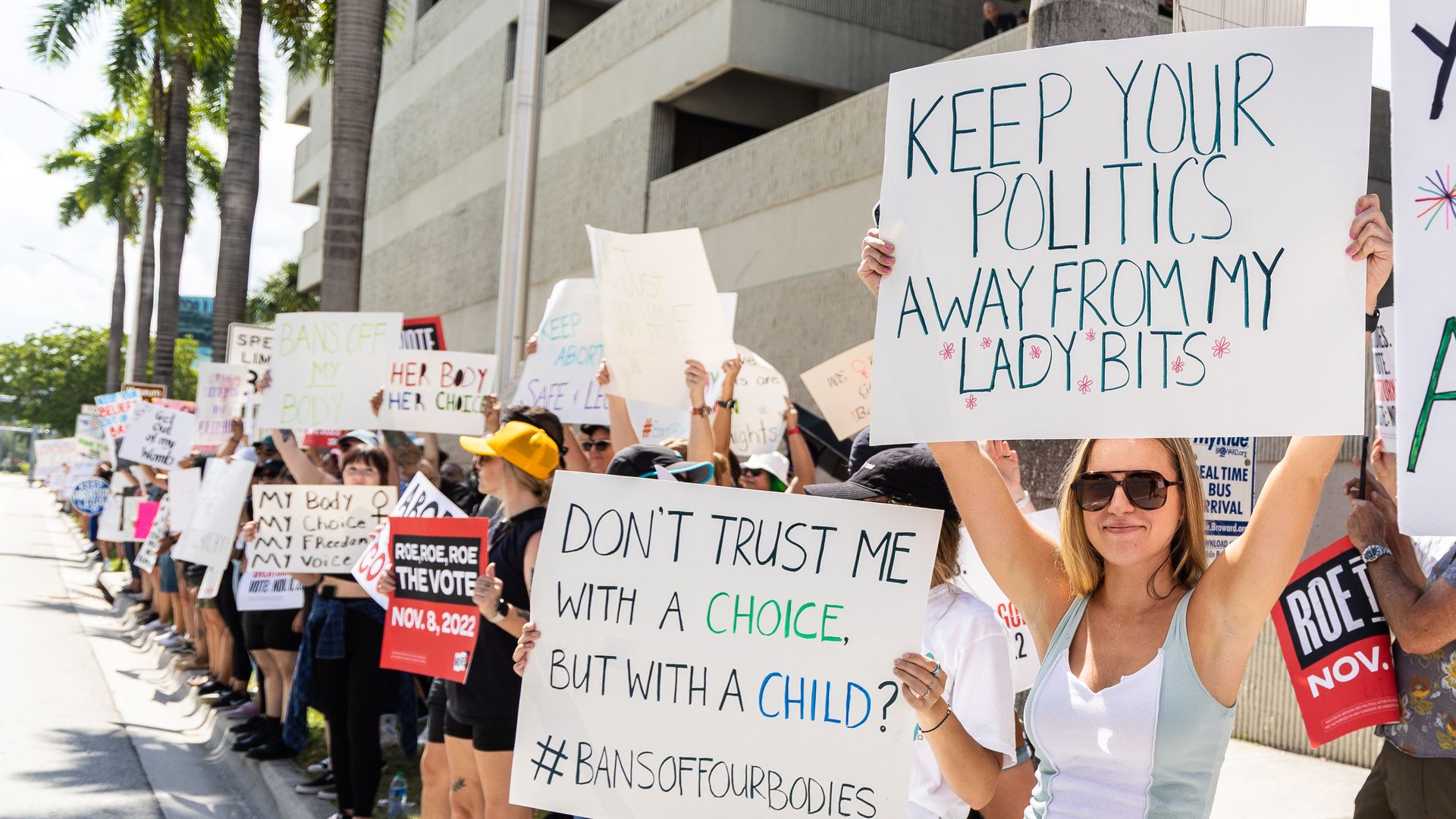
Photo by John Parra/Getty Images for MoveOn
Anti-abortion groups are pushing new laws to block online advertisements about abortion in the wake of the Supreme Court ending Roe v. Wade.
The big picture: The National Right to Life Committee has drafted legislation that would make it a crime to advertise information online about methods to end a pregnancy, Politico reports.
- The bill would treat abortion like organized crime, by using a combination of civil and criminal penalties in the same way that the 1970 Racketeer Influenced and Corrupt Organizations Act does, Politico writes.
Details: Google and Facebook could potentially be liable for any user-generated content promoting abortion that’s aimed at people in states where those services are illegal, Politico writes.
Why it matters: At least 26 Republican-led states in total are expected to ban abortions or heavily restrict access to them in the wake of the ruling, according to the Guttmacher Institute, an abortion-rights organization.
- Online orders for abortion pills — specifically two medicines named mifepristone and misoprostol — are expected to grow in the wake of the Supreme Court's ruling.
State of play: The FDA lifted long-standing restrictions in December and paved the way for doctors to prescribe them online and mail them to patients.
- But the pills are the next big abortion battleground and several red states have already started to crack down on them.
The other side: Abortion rights groups say that advertisements should be protected under the First Amendment and that getting ads promoting abortion services approved has been difficult thus far.
- “Advocating for a person’s right to get an abortion, informing a person about how to legally get an abortion, encouraging a person to make their own reproductive health choices, those are all protected by the First Amendment,” said Vera Eidelman, a staff attorney with the ACLU’s Speech, Privacy and Technology Project.
- Instagram and Facebook removed posts from users offering to share abortion pills last month. Meta said the posts violated its policies on regulated goods, Vice reported.
Go deeper:
